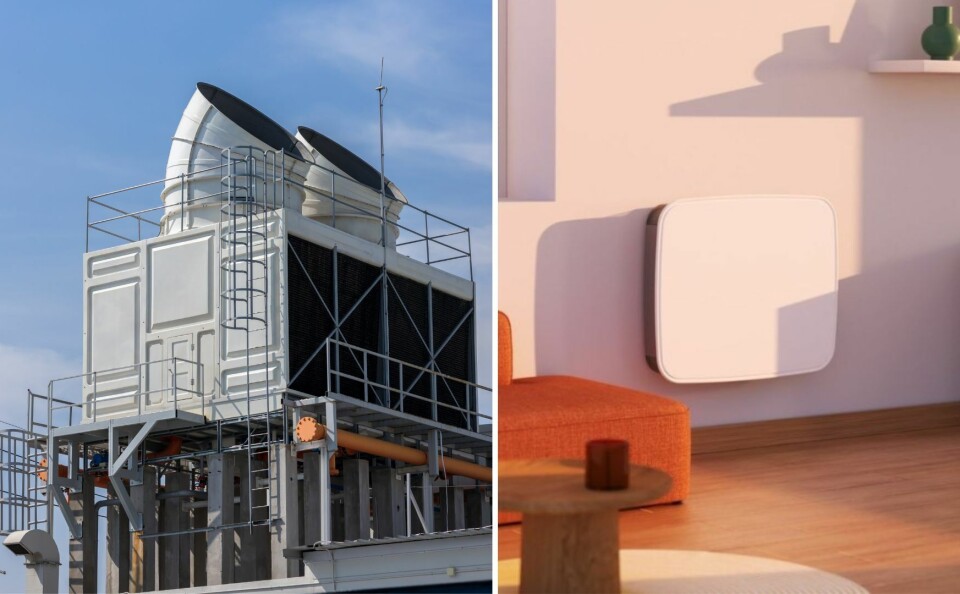-
Wood heating costs rise again this winter - as do the risks for buyers
Over seven million households heat with wood
-
Heat pumps three times more efficient than oil or gas boilers, French study reveals
Pumps could be an economical and ecologically sound heating solution
-
France extends boiler replacement grants
New incentives offer larger grants for modest-income households to switch to efficient heating systems
Get paid to heat your French home with IT processing radiators
A French company aims to reduce vast heat loss from large data centres by putting computer chips in home radiators

Homeowners are being offered money by a French company to install radiators equipped with computer chips, which produce heat by carrying out complex calculations.
Heat from these IT processes is recovered to warm the room, while the computing power is sold to companies via the home’s wifi.
In return, homeowners get an annual payment, which could reach €450 a year for a 90m² house with four or five radiators installed.
Read more: How to sell energy to the grid from your solar panels in France
Large data centres lose huge amounts of heat
The devices, which otherwise act like normal inertia radiators, also have intelligent functions, such as detecting when windows are open, to save even more money by avoiding energy waste.
The ultimate aim is to reduce the huge amount of heat currently lost in large data centres.
The idea of using linked, dispersed computers to do super-calculations rather than a single powerful machine has been around for a while.
Apart from a couple of volunteer projects, however, the idea has never been implemented on a large scale using home computers or appliances.
First radiator delivered in autumn
Alexandre Vinot, co-founder of the company, Hestiia, told The Connexion: “Computers produce heat when they work and usually it is just wasted or, in the case of large data centres, removed with expensive air conditioning.
“We thought there must be a way of using that heat in homes.
“It has taken us five years to reach the stage where we are getting final certification and are now able to take orders for the first models, called myEko, which will be delivered in autumn.”
Concerns over illegal activity
At the moment, demand for super-calculations mostly comes from developers of artificial intelligence systems and blockchain applications.
“There is a market to sell access to this super-calculation ability and that is what will help us make money,” said Mr Vinot.
Homeowners will have no choice in what their radiators calculate but there is no risk of police arriving on the doorstep and removing them if they are used for illegal activity.
“Authorities might come to us and ask us for information on clients if there is a problem but there is nothing in the radiators that stores data, apart from a very small buffer memory, and so seizing them makes no sense,” said Mr Vinot.
Install close to wifi box
The radiators weigh 29kg and can be installed by any electrician or by a competent DIY installer.
Read more: How can I find a reliable electrician in France?
Mr Vinot says they are ideal either for new-builds or to replace old radiators.
They consume 1,000w, similar to most French electric radiators.
At least one of the radiators should be close enough to a wifi box to get a good signal, but the others will then be able to link to it so that parts of the house which do not get wifi can still be heated.
Data used is equivalent to 30 emails
The amount of data transmitted by each radiator is small, compared to the daily data transmissions of a home computer.
Mr Vinot says it is the equivalent of around 30 emails, or a couple of minutes browsing the web.
“It will not be noticeable at all,” he said.
The first 10,000 myEko radiators are on sale at €490 each using a pre-order system, where a €49 deposit gets you a radiator from September. After that, they will be priced at €590.
Related articles
How do I dispose of old fioul oil if change heating system in France?
Are grants for heat pumps in France also open to second-home owners?
























